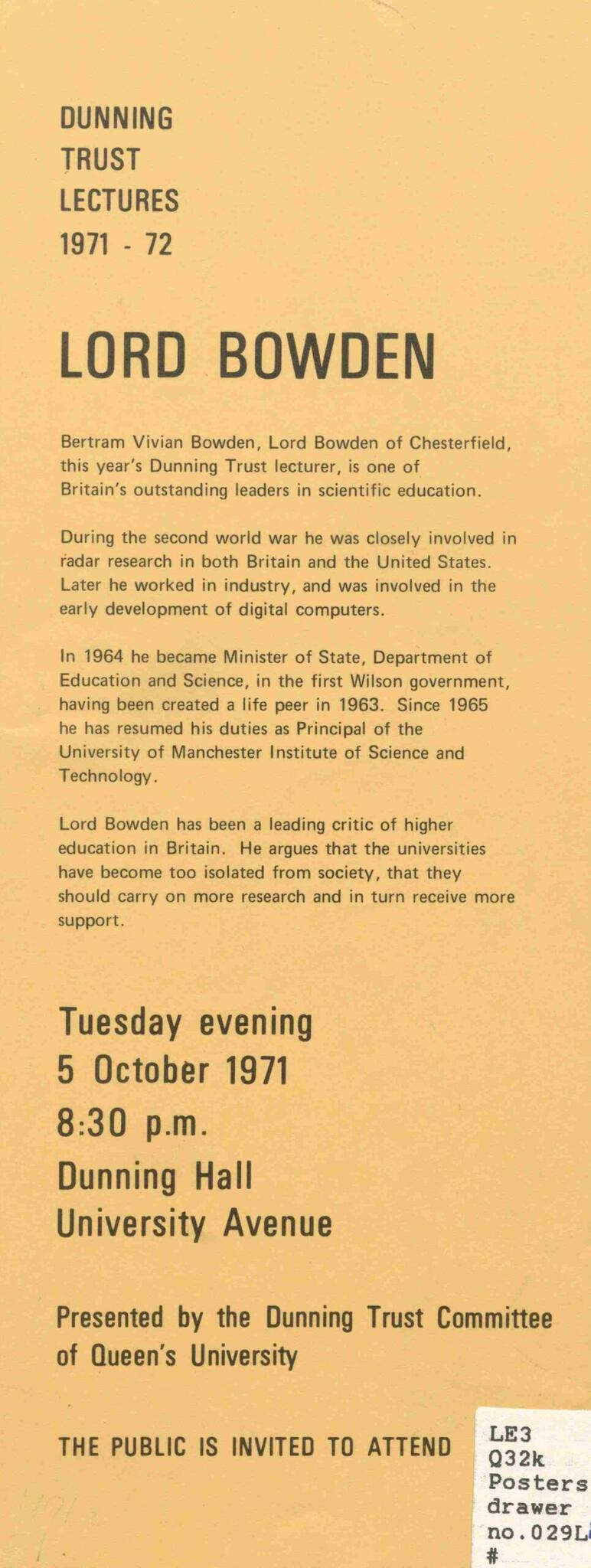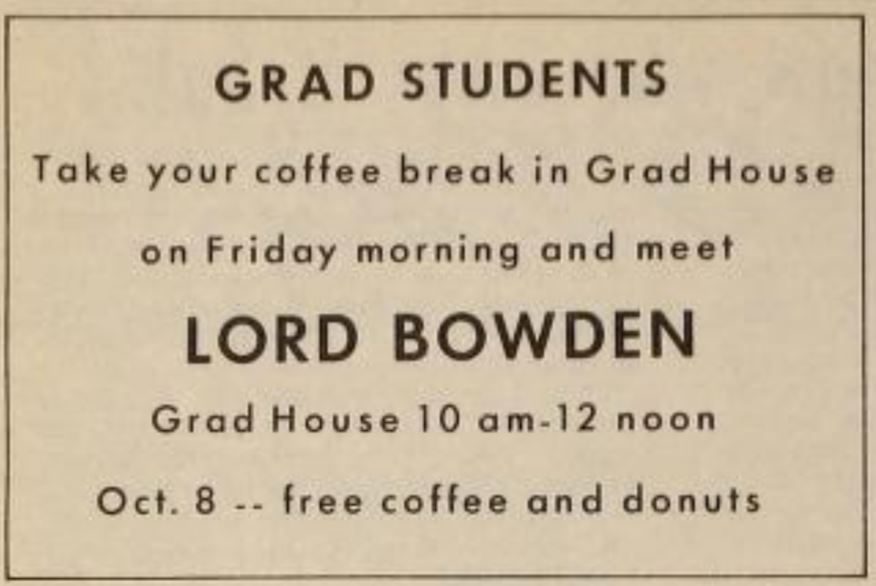Lord Bertram Vivian Bowden was the principal of the University of Manchester Institute of Science and Technology. After earning his PhD in natural sciences from Cambridge, Bowden taught physics at a number of schools. During the Second World War, he was involved with radar research for British and U.S governments and assisted in the early development of digital electronic computers. After the war, he returned to Britain and worked with the Atomic Energy Authority and later with Ferranti Ltd., a Manchester-based electronics company. In 1953, he became principal of the Manchester College of Science and Technology which, under his leadership and with the postwar explosion in post-secondary education, became the University of Manchester Institute of Science and Technology (UMIST). In 1964, Lord Bowden became Minister for Education and Science in Harold Wilson’s government, though he returned to UMIST in 1965. As a critic of British higher education, Bowden believed that universities were too isolated from the rest of society. He became a life peer in 1964. Lord Bowden died in 1989.
Lord Bowden’s lecture was a part of a series on “The Role of Post-Secondary Education.” In his lecture, Lord Bowden discussed the medieval origins of the university, illustrating that a number of the problems of the contemporary university system were actually historical artifacts of the medieval system. He argued, for example, that the entire concept of student power emerged from the medieval Italian university, was exported across southern Europe and to South America, and from there migrated to North America, where in the 1960s it formed an alternative vision of universities that was based on ancient forms. Bowden also suggested that the university system was, around the world, ceasing to be an important component of society: increasing, graduates found it difficult to find relevant work. This was compounded by the recession of the early 1970s. In 1971, as in medieval Europe, Bowden suggested, leaders in higher education needed to realize that universities are but one pillar of society: they can educate and create intellectual firmament, but they cannot in themselves create a society entirely. Despite his historical analogies, Bowden concluded by admitting that the present problems were also unique – the problems of the 1970s could not even be properly compared to the 1960s, much less the 1590s. While the solutions were yet non-existent, they were needed to continue the growth of the universities and the survival of Western civilization as a whole.
Lord Bowden’s lecture was held on October 5, 1971. Listen to a recording of his lecture below.

